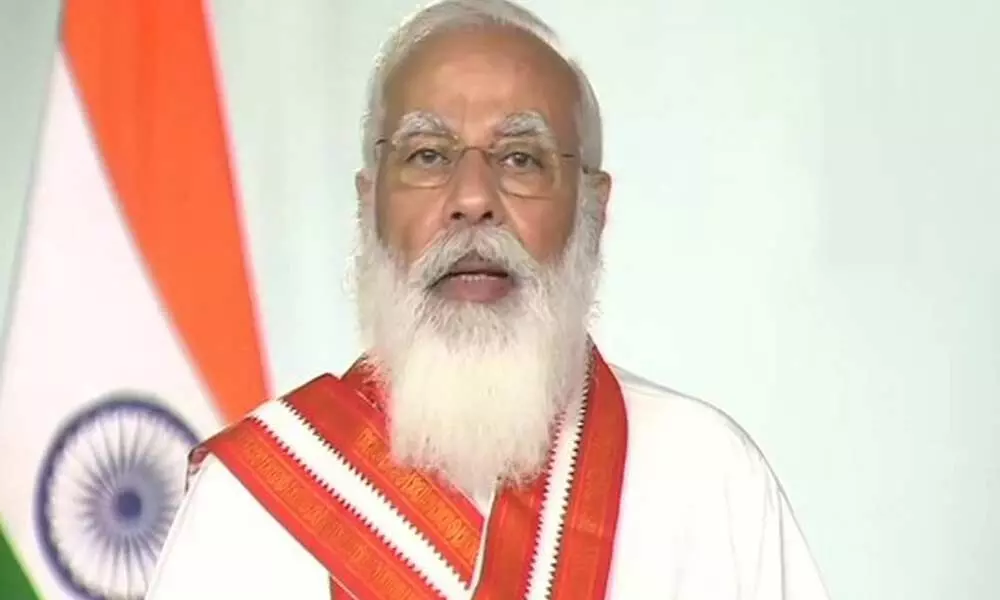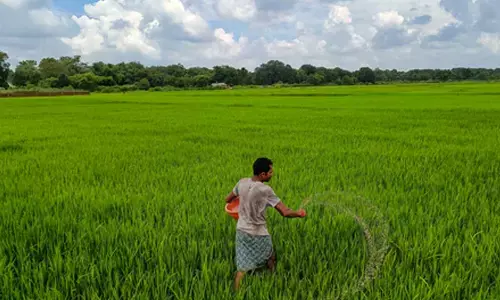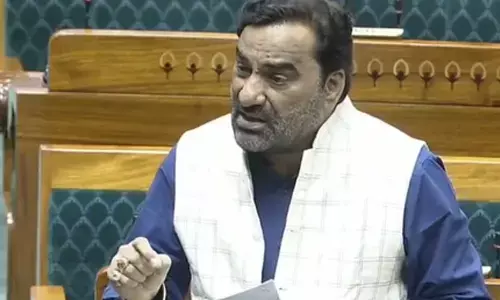Inspired by Bhagavad Gita, India helping humanity with COVID-19 vaccines: PM Modi

Inspired by Bhagavad Gita, India helping humanity with COVID-19 vaccines: PM Modi
India is humbled that 'Made in India' COVID-19 vaccines are going around the world and helping people, exactly what the Bhagavad Gita teaches, said Prime Minister Narendra Modi on Wednesday.
New Delhi: India is humbled that 'Made in India' COVID-19 vaccines are going around the world and helping people, exactly what the Bhagavad Gita teaches, said Prime Minister Narendra Modi on Wednesday.
While speaking at the virtual launch of the Kindle version of Swami Chidbhavananda's Bhagavad Gita, PM Modi further said that "anybody who is inspired by Gita will always be compassionate by nature and democratic in temperament."
"In the recent past when the world needed medicines, India did whatever it could to provide them. India is humbled that Made in India vaccines are going around the world. We want to heal as well as help humanity. This is exactly what Gita teaches us," PM Narendra Modi said.
"At the core of Aatmnirbhar Bharat is to create wealth and values, not only for ourselves but for the larger humanity. We believe that an Aatmnirbhar Bharat is good for the world," the Prime Minister said.
Over the past few weeks, India has supplied Indian-made COVID-19 vaccines to over 25 countries, including Bhutan, Maldives, Nepal, Myanmar, Bangladesh, Barbados and Cote d'Ivoire. Forty-nine more countries will be supplied in the coming days, ranging from Europe, Latin America and the Caribbean to Africa, South-East Asia and the Pacific Islands.
Swami Chidbhavanandaji is the founder of Sri Ramakrishna Tapovanam Ashram at Thirupparaithurai, Tiruchirapalli, Tamil Nadu. Swamiji has authored 186 books and all genres of literary composition. His scholarly work on the Gita is one of the most extensive books on the subject.
Tamil version of the Gita with his commentaries was published in 1951, followed by the English in 1965. Its translations into Telugu, Oriya, German and Japanese were undertaken by devotees.

















